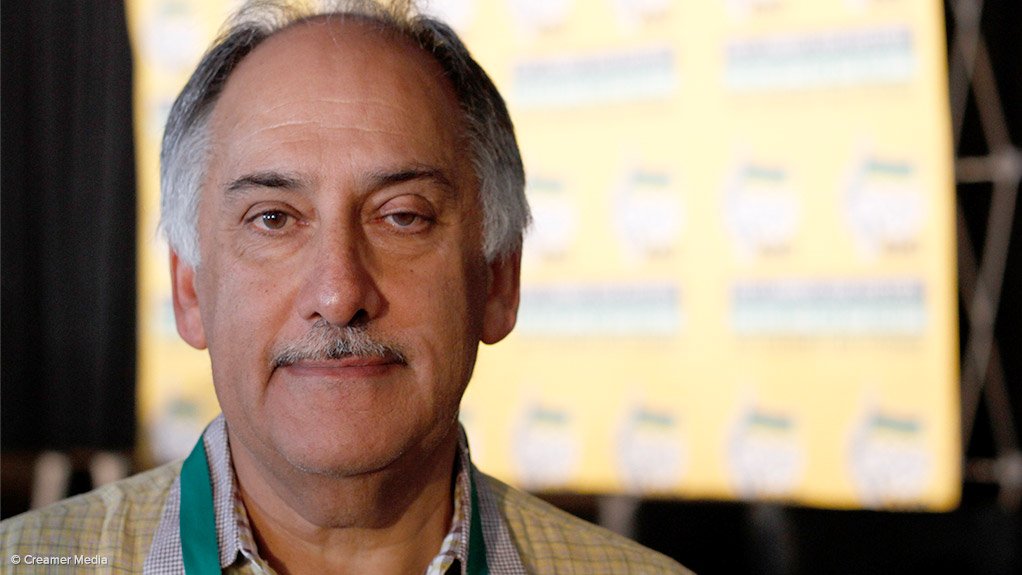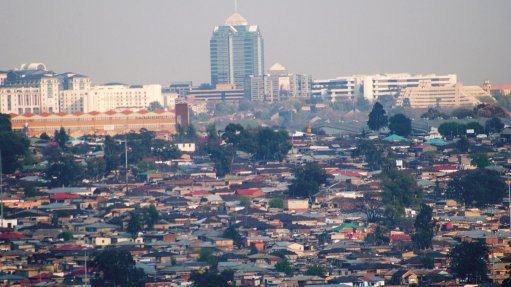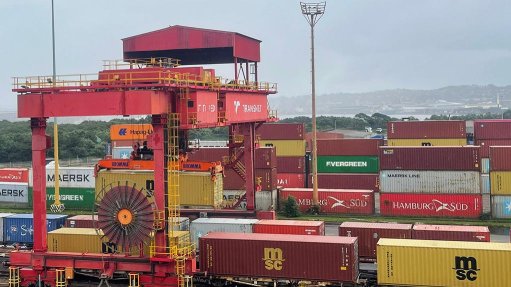Govt not working enough with private sector to address challenges
There has been insufficient meaningful interaction between government and the private sector, which has contributed significantly to the economic hardship that South Africa currently faces, Business Unity South Africa CEO Cas Coovadia has said.
“We are getting to a stage where we've got to ask, as the private sector, given that there isn't a quid pro quo from the government in any real positive sense, are we becoming complicit in nothing happening?" he asked during a recent media briefing.
Coovadia was speaking as part of a panel at auditing firm PwC's post-National Budget Panel Discussion for 2023 on February 24. He said that, despite government's constant pleas for the private sector to step up and help rectify the ship, it was the government that was more often than not unwilling and unable to work with the private sector.
“There are parts of government that still ideologically don't trust the private sector. There are parts that want to control as much as they can without having the capacity to do anything good or optimal in controlling stuff. Yet the resources and capacity lie in the private sector. I believe we have a patriotic private sector in this country, and we're not actually utilising that,” he said.
Coovadia said the time had come for the private sector to unapologetically say: “We want to help. We have the resources. We have the capacity. These are the critical issues for us. This is what we're going to do, Mr President. Let's talk. It's not a negotiation.”
South Africa Revenue Service Commissioner Edward Kieswetter echoed some of Coovadia’s sentiments.
“To continue to hold this expectation that somehow a saviour government will come around and, with one magic wand, fix things for us, is not going to bring any change. Every fundamental change in South Africa has come about through active citizenry – not because the government decides,” Kieswetter said.
South Africa’s economy is struggling against a backdrop of loadshedding, slow economic growth, a high unemployment rate and growing inequality, PwC Southern Africa CEO Shirley Machaba said, adding that the country’s potential to grow was being stifled, but South Africans needed to choose to view the situation as an opportunity on the precipice of change.
“If we come together as government, business, workers and civil society, we can effect change that our country desperately needs,” she said.
PwC's latest yearly Global CEO survey shows that nearly three-quarters of CEOs believe global economic growth will decline over the next 12 months – the most pessimistic outlook in a decade.
“Now is the time for government, business and society to be action-led to deliver sustained outcomes in an environment where the risk of disruption is more intense than ever, and societal expectations have never been greater,” Machaba said.
Reflecting on the Budget speech delivered by Finance Minister Enoch Godongwana on February 22, PwC South Africa partner, chief economist and environment, social and governance platform lead Lullu Krugel said the government had at least delivered on its promises to bring debt under control and reduce the budget deficit.
However, she voiced concern over the sheer scale of bailouts announced for State-owned entities (SOEs), amounting to R287.4-billion in total, which she said begged the question as to whether some of the 750 current SOEs should perhaps be disposed of.
"Are they still valuable and, in the current circumstances, do we actually need all of them? Are there not a lot that can actually be taken over by the private sector if there's a need for them? I really do think we need a critical view of that," Krugel said.
Kieswetter said the decision to award ailing SOE Eskom R254-billion to pay off its debts was a necessary evil.
“No one wants to give more money to Eskom but, given the fact that the lack of performance in Eskom affects all of us, [Godongwana] stepped in to bring about some stability and, with clear conditionality, take some pressure off the Eskom balance sheet to allow it some space to maintain its existing fleet while restricting it to invest in renewables,” Kieswetter acknowledged.
Coovadia added that the Finance Minister's role in the budget policy direction came from above, meaning that Godongwana’s powers to effect change were limited.
“I think that the Minister and his team had very little to work with,” Coovadia said.
PwC South Africa partner Professor Osman Mollagee felt that the Budget speech lacked any clear direction.
Author and political editor Qaanitah Hunter agreed.
“Where the politics come in, details are what matter, and I think that's what the Finance Minister skirted around. I think that there needs to be a realisation that not much is going to change drastically in terms of growth and governance,” she said, noting that the Budget speech was reactionary and akin to an injured animal limping and trying not to injure itself further.
Hunter said that the bailout funds would not effect change but rather just prolong the inevitable demise of the myriad failing SOEs, only serving to somewhat cushion the impact of past failures.
On the steps taken by Godongwana in his speech to address the electricity crisis, the panel was left mostly underwhelmed.
"I've got a list here of things that have been achieved since it was announced [on February 13] that we were in a state of disaster on electricity," business commentator and radio host Bruce Whitfield said, holding up a blank piece of paper.
He said that, in his view, the state of disaster announcement was just a public relations (PR) stunt designed to placate angry and frustrated South Africans who were calling out for decisive action to address the country's escalating electricity crisis.
"It feels like the President is desperately clawing onto PR opportunities rather than fixing problems," Whitfield said.
Article Enquiry
Email Article
Save Article
Feedback
To advertise email advertising@creamermedia.co.za or click here
Press Office
Announcements
What's On
Subscribe to improve your user experience...
Option 1 (equivalent of R125 a month):
Receive a weekly copy of Creamer Media's Engineering News & Mining Weekly magazine
(print copy for those in South Africa and e-magazine for those outside of South Africa)
Receive daily email newsletters
Access to full search results
Access archive of magazine back copies
Access to Projects in Progress
Access to ONE Research Report of your choice in PDF format
Option 2 (equivalent of R375 a month):
All benefits from Option 1
PLUS
Access to Creamer Media's Research Channel Africa for ALL Research Reports, in PDF format, on various industrial and mining sectors
including Electricity; Water; Energy Transition; Hydrogen; Roads, Rail and Ports; Coal; Gold; Platinum; Battery Metals; etc.
Already a subscriber?
Forgotten your password?
Receive weekly copy of Creamer Media's Engineering News & Mining Weekly magazine (print copy for those in South Africa and e-magazine for those outside of South Africa)
➕
Recieve daily email newsletters
➕
Access to full search results
➕
Access archive of magazine back copies
➕
Access to Projects in Progress
➕
Access to ONE Research Report of your choice in PDF format
RESEARCH CHANNEL AFRICA
R4500 (equivalent of R375 a month)
SUBSCRIBEAll benefits from Option 1
➕
Access to Creamer Media's Research Channel Africa for ALL Research Reports on various industrial and mining sectors, in PDF format, including on:
Electricity
➕
Water
➕
Energy Transition
➕
Hydrogen
➕
Roads, Rail and Ports
➕
Coal
➕
Gold
➕
Platinum
➕
Battery Metals
➕
etc.
Receive all benefits from Option 1 or Option 2 delivered to numerous people at your company
➕
Multiple User names and Passwords for simultaneous log-ins
➕
Intranet integration access to all in your organisation




















